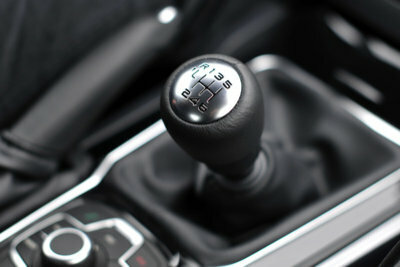VW Golf 6 TSI
TSI stands for an engine technology from the automobile manufacturer VW. Motors of this type have been installed since 2005. The Golf 6, which has been in production since 2008, also has a further modernized gasoline engine, which instead of a toothed belt has a timing chain and a volume flow-controlled oil pump.

Volkswagen has been relying on TSI (petrol) and TDI (diesel) for the motorization of its vehicles for several years. The experiences made so far with the small engines have been positive.
TSI Motorentechnik - turbocharging or compressor ventilation
- The TSI brand name stands for engine technology that aims to achieve the highest possible performance by means of turbocharging or compressor ventilation.
- The advantage of the lower consumption of a small displacement is combined with the power and torque of a large one. A direct injection gasoline engine (Otto engine) is charged with two different chargers or with just one exhaust gas turbocharger.
- TSI first came out in 2005 as a double-charged 1.4-literengine for use. Since model year 2008 (for example in the VW Golf 6), mainly turbocharged engines with direct fuel injection have been installed. The new basic engine design also relies on a timing chain and a volume flow-controlled oil pump.
Engine variants of the gasoline-powered VW Golf 6
- In addition to the 1.4 (80 PS) and 1.6 (102 PS) with classic naturally aspirated engines, the model variants for the VW Golf 6 mainly include turbocharged vehicles from 85 (1.2) to 210 PS (2.0).
- Even if naturally aspirated engines are technically not that complicated, the turbochargers require much lower speeds. A lot of torque is already available in the lower speed range.
- Those who place more value on top speed choose their Golf with a correspondingly high number of horsepower. Of course, high performance results in a certain amount of gasoline consumption. Depending on the model, that's 7 to 10 liters per 100 kilometers.
- The durability of TSI engines is at least 250,000 kilometers. One problem with the motors is the possible high follow-up costs in the event of a defect. This can be avoided if necessary with appropriate (expensive) maintenance and an appropriate driving style.
The new VW T5 engines are equipped with very innovative technology. There is …
VW has admitted problems with the durability of the 1.4-liter TSI engines (built in 2006/2007), but referred to these as isolated cases. In some models of the VW Golf 6 series, as well as in the Touran and Tiguan, the timing chain, chain tensioner and camshaft adjuster wear out too quickly. The consequence can be serious and expensive engine damage.
How helpful do you find this article?

